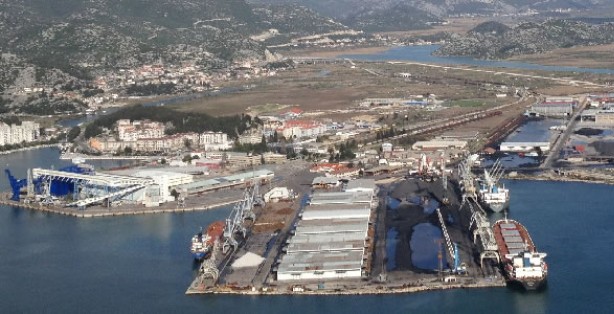Eviden, part of the Atos Group, is driving the digitalization of maritime logistics with the deployment of a dedicated 5G Mobile Private Network at the Port of Ploče in Croatia. This initiative, executed under the port’s Smart Port project, introduces advanced connectivity and automation to optimize port operations.
The Port of Ploče is a critical logistics hub for Central and Southeastern Europe. The new 5G network aims to deliver high-speed, low-latency communications that enhance operational efficiency, safety, and environmental sustainability.
Operational Challenges Facing Smart Port Transformation
Ports are complex ecosystems involving ships, vehicles, cargo handlers, and safety systems. The Port of Ploče faced several operational challenges:
-
Fragmented Connectivity: Legacy networks could not provide real-time visibility of cargo and vehicle movements.
-
Manual Monitoring: Lack of automated cargo tracking and inspection slowed down operations.
-
Safety Risks: Limited surveillance and sensor coverage impacted emergency response capabilities.
-
Environmental Impact: Traditional systems provided little support for monitoring pollution and sustainability metrics.
To address these challenges, the port needed a secure, high-capacity, and scalable connectivity layer capable of integrating IoT, AI, and edge computing.
Eviden’s 5G Private Network Solution for the Port of Ploče
Eviden’s Lifelink solution forms the backbone of the new 5G private network. Designed for mission-critical environments, it enables seamless, real-time communications across port operations.
Key Features:
-
Real-Time Location System (RTLS): Tracks vessels and vehicles with high precision, improving traffic, mooring, and parking management while enhancing security.
-
Advanced Cargo Monitoring: AI-enabled smart cameras and IoT sensors automate cargo identification and analytics, reducing errors and increasing throughput.
-
Incident Detection & Response: Thermal cameras, fire sensors, and environmental sensors provide early warnings for emergencies and help maintain safe operations.
-
Drone Integration: The network supports real-time drone surveillance for infrastructure inspections and cargo monitoring.
Why Eviden Selected the Lifelink Platform for Smart Port Connectivity
The Lifelink platform was selected for its ability to deliver:
-
Secure and Resilient Communications: Protecting mission-critical data with advanced network security protocols.
-
Low-Latency Performance: Supporting time-sensitive logistics applications.
-
IoT and AI Integration: Enabling predictive analytics and automation.
-
Edge Computing: Processing data locally for faster response times.
This combination of technologies transforms the port into a connected, data-driven environment capable of meeting modern logistics demands.
Key Advantages of 5G Private Networks for Maritime Logistics
-
Operational Efficiency: Automated tracking and analytics streamline cargo handling and traffic flow.
-
Safety and Security: Real-time monitoring and AI-driven incident detection reduce risks and improve emergency response.
-
Sustainability: Continuous air and sea quality measurements support green initiatives and pollution control.
-
Scalability: The private network provides a foundation for future digital services, including autonomous vehicle integration and predictive maintenance.
How 5G Private Networks Are Reshaping Ports and Transport Infrastructure
The project highlights the growing role of 5G Private Networks in modernizing transport and logistics infrastructure. The Port of Ploče can serve as a blueprint for other maritime hubs, airports, and smart cities aiming to deploy secure, high-performance connectivity for critical operations.
Eviden’s Role in Driving Croatia’s Smart Port Initiative
Eviden leads the deployment, providing the 5G network, critical communication systems, and integration of IoT and AI solutions. Leveraging its proven track record in defense, utilities, and industrial sectors, the company delivers a robust and reliable platform for the port’s digital transformation.
Local Collaboration: Markoja’s Contribution to the 5G Deployment
Local partner Markoja supports on-site deployment, ensuring the network is tailored to the port’s specific operational and regulatory needs. This partnership ensures smooth implementation and long-term maintenance.
Smart Port Project Timeline: From Deployment to Full Rollout
-
July 2025: Project announced and initial deployment starts.
-
Q4 2025: Integration of RTLS, smart sensors, and drone operations.
-
Early 2026: Full operational rollout under the Smart Port program.
Leadership Insights on the Port of Ploče 5G Deployment
-
“This deployment is a crucial step in implementing smarter, safer, and more connected port operations.” – Sandi Marušić, Head of Eviden, Atos Group Croatia.
-
“We are proud to present our proven Lifelink solution designed to deliver secure, high-performance connectivity to critical environments.” – Lionel Toullier, Global Head of Critical Communications Solutions, Eviden.
-
“This agreement will optimize and digitalize processes, improve safety, and reduce pollution in port operations.” – Tomislav Batur, Director, Port of Ploče Authority.



























